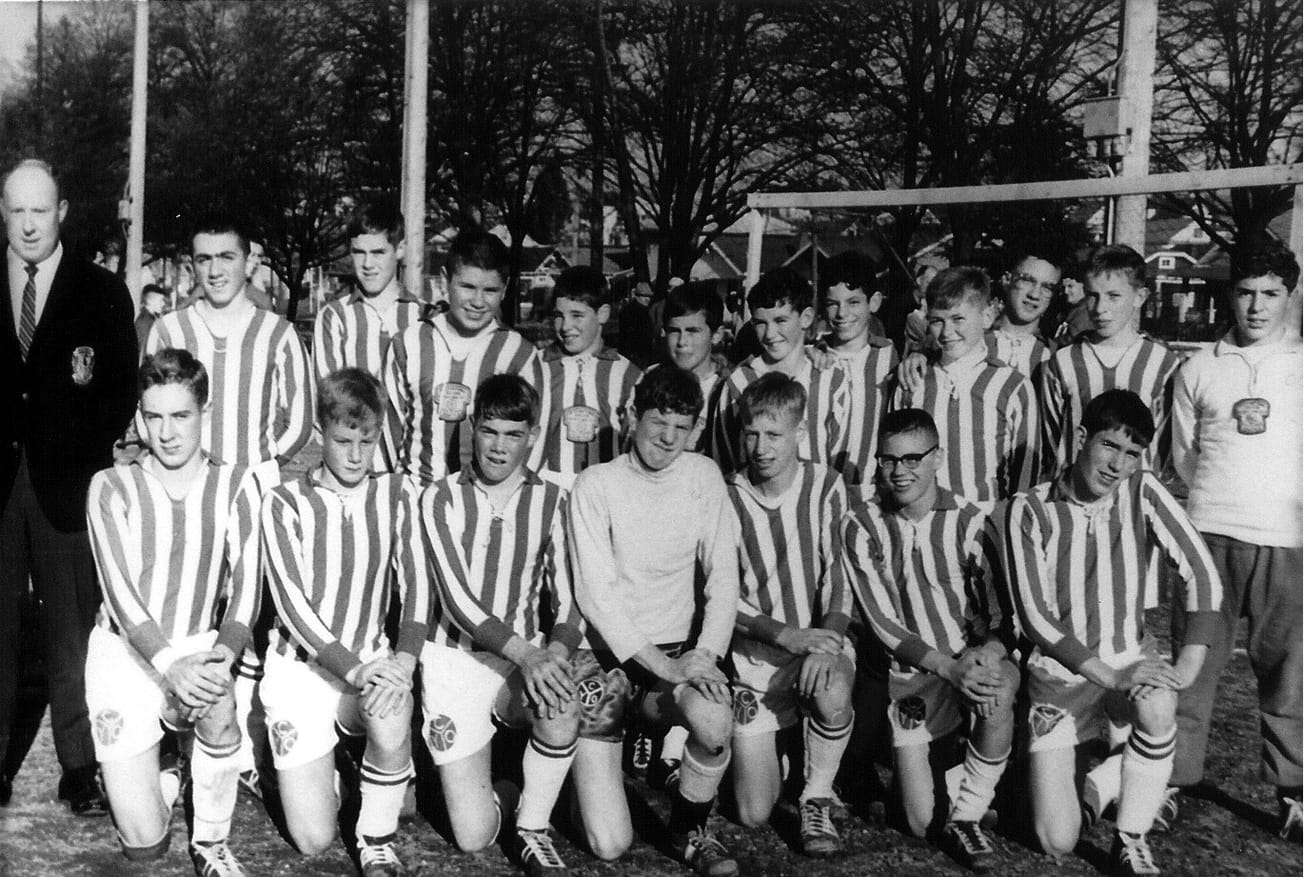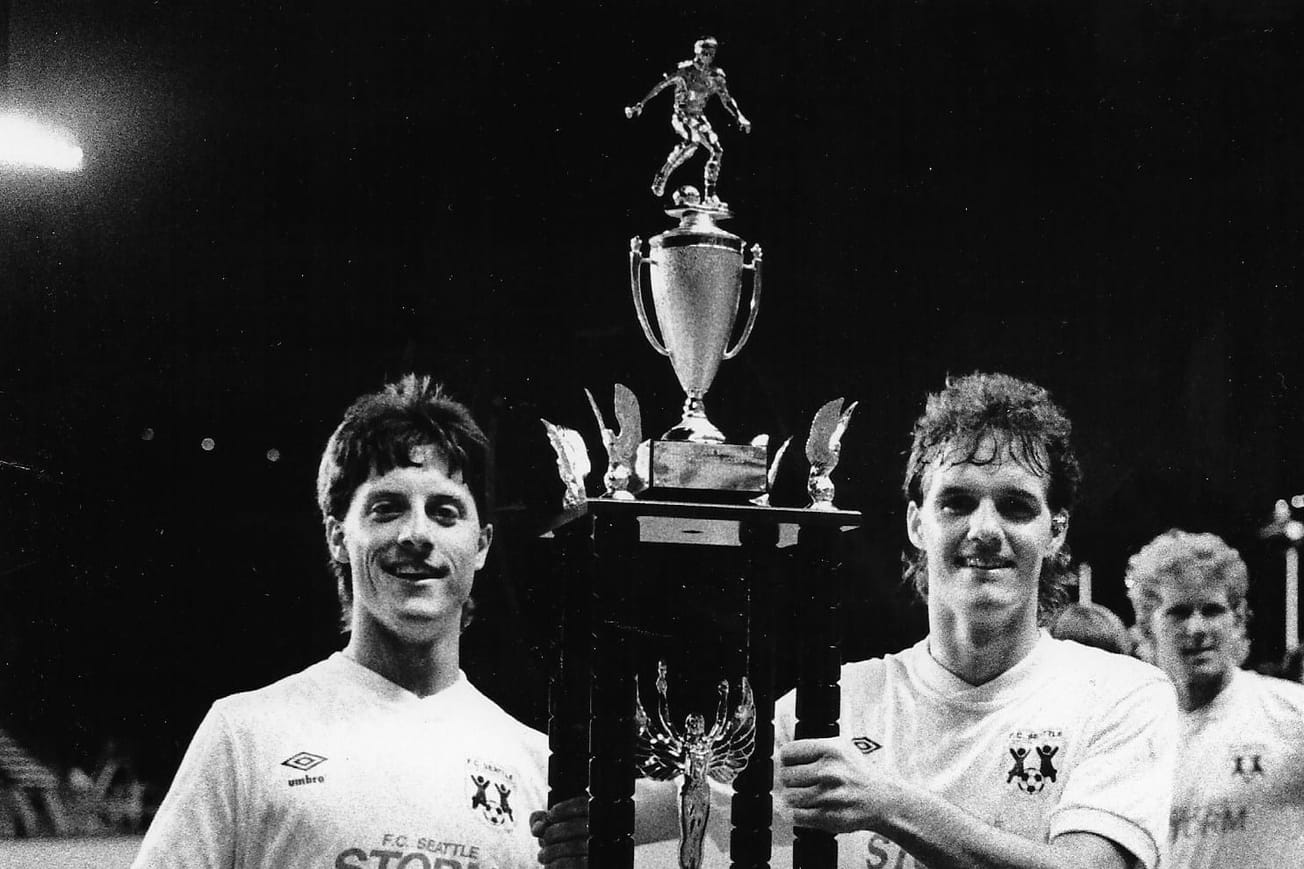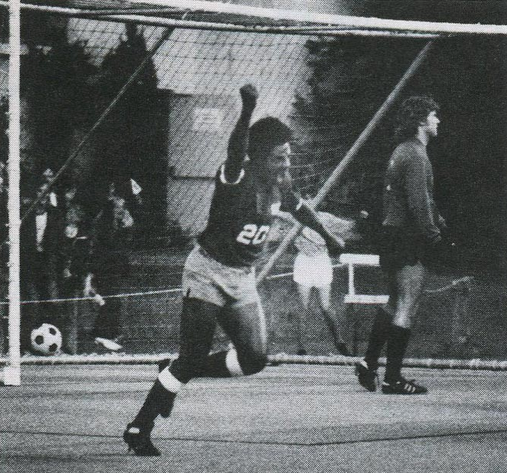Some 40 years ago, while at the University Book Store, I crossed paths with a book like none other. After consuming many a book about soccer tactics, skills and history, The Soccer Tribe was about the game’s rituals, its participants and its followers. Written by noted British zoologist Dr. Desmond Morris, it studied human beings through the footy lens.
The Soccer Tribe took a macro approach to observing people who surround the game. In Soccer Stories of Old Seattle and Around the World, it is a more nuanced, micro examination by author and Seattle native Phil Davis and co-contributor Bob Smith.
From July 23 through July 27, 2024, electronic copies of Soccer Stories of Old Seattle and Around the World will be available free of charge from Amazon. Davis asks that in lieu of a payment during that period, readers consider making a donation to Washington State Legends of Soccer, either for its scholarship fund or ongoing initiatives.
Davis shares tales of places he’s visited, people he’s met or discovered – all at the intersection of soccer and life.
Asked about his newly published book’s message, Davis writes that in a country and world that often presents itself as deeply divided, “Friendship between different kinds of people is possible. So is world peace, or at least the end of long wars,” he added. “We practice every four years with the World Cup. All that is needed is a sporting attitude, a few rules developed by Thomas Aquinas 850 years ago, and the beautiful game.”
The Characters
His book begins with the introduction of Mike Ryan. For Davis, Ryan was the volunteer coach at St. Catherine of Siena School in Seattle’s Maple Leaf neighborhood. The Dublin-born Ryan was then a youth coach and top player in the Washington State League. He would go on to coach the Washington Huskies’ men’s varsity and women’s club, then guide five local women’s teams to national titles before becoming the first U.S. Women’s National Team head coach.
Ryan was a soccer evangelist and teacher. He loved to dance, and the marriage of the sport and his ballroom footwork was evident in his first instruction to Davis and those young boys. “Soccer is more like a dance than a home run kicking contest. Listen for the music, learn the steps and watch the older players,” Davis quotes Ryan.
The reader meets other characters, some admirable and some more flawed.
There’s a long-ago youth coach with a self-destructive streak, and as was too often the case in the State League, combustible confrontations between clubs of different ethnicities.
There are the immigrant farmworkers in eastern Washington who become Davis’s teammates shortly after starting his teaching career. They, too, love the game and play with grace yet faced the constant threat of deportation.
In New Mexico, there arises the issue of playing rules for a co-rec league and the short- and long-term implications.
There is Davis’ trip to the 2018 World Cup in pre-war Russia. There he would be met kindly by local strangers from Siberia and traveling supporters of Peru.
We are introduced to Marbella Ibarra. During her all too short life Ibarra advocated for women, women’s football and creating teams and a Mexican national league, Liga MX Femenil. Four months after the league final attracted over 50,000 spectators, Ibarra was murdered at the age of 46.
A generation or so after being first instructed by Ryan, Davis himself was a coach. He must deal with the pressure of parents as well as the opportunity to draw out the best in a troubled youth.
From his preface, Davis writes, “Forty years of English classes did give me an eye for what good readers deserve. Literature should make us smile, cry, argue, get angry, laugh or see the world in a new way…Good sports literature should give us a nugget to chew on, so the ensuing discussion sheds light on the human condition.”








